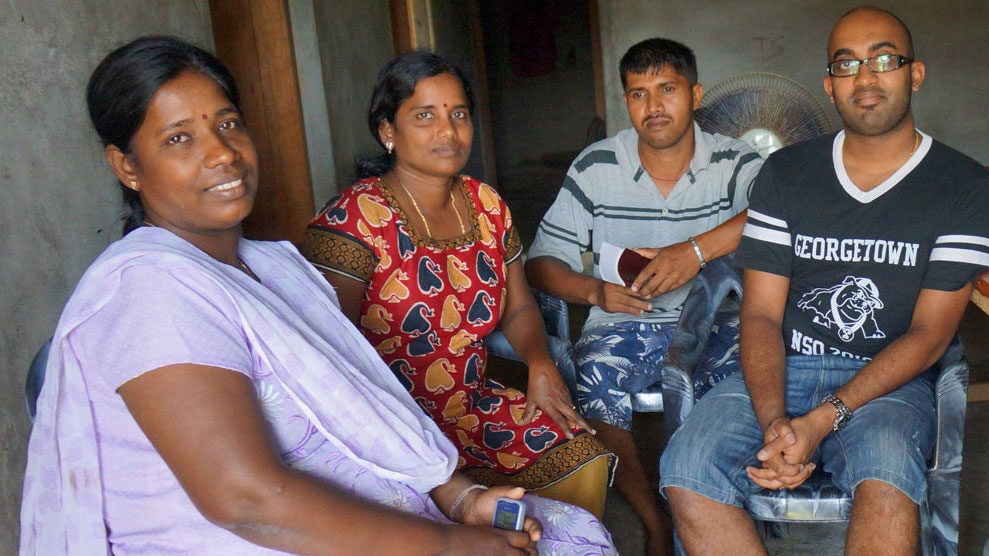Georgetown Students’ Migrant Research Tapped by International NGO

Three years ago, when six Georgetown students teamed up with their professor to design a financial literacy curriculum for migrant workers, little did they know that the fruits of their labor would be used by an international NGO to train pre-migrants and migrant families left behind.
Georgetown alumnus Aakash Jayaprakash was extremely happy to see the culmination of their work when he recently learned that one of the largest Swiss-based NGOs would be using the curriculum that he and his Undergraduate Research Experience Program (UREP) team designed. “Our hard work is making a real difference in the region!” he exclaimed.
The UREP project, awarded in 2010 by the Qatar National Research Fund (QNRF), found that migrant workers can learn to save more money after attending a short financial literacy workshop. The study focused on married, male Indian migrant workers in Doha, Qatar, and their wives who remained back in India.
Assistant Professor Ganesh Seshan was the Georgetown faculty mentor for the six students who worked together to implement a control trial of the migrant workers. The UREP team randomly assigned migrant study participants to either a treatment group that had the choice of attending a financial literacy workshop, or to a control group that was not invited to attend.
The UREP team students, Eilin Francis, Aakash Jayaprakash, Aminah Kandar, Jibin Koshy, Marlene Nang, and Qazi Rashid, provided the research assistance that led to the decisive conclusions. Georgetown alumnus, Karthik Gopalan, now studying at Columbia, worked on the curriculum’s first draft in an earlier UREP project that inspired the recent study’s focus on financial literacy.
The recent study found that a savings-focused workshop substantially changed migrant workers’ financial practices. It also led to more joint financial decision-making between migrants and wives.
“This is one of the most practical and field-oriented training modules on financial literacy I have seen,” said Katrin Rosenberg, project manager at HELVETAS Swiss Intercooperation in Sri Lanka. “This module, together with other modules, will serve as a basis for the development of our specific training tool on budgeting and saving.”
Rosenberg expects that the curriculum can also be adapted for use and contribute to the creation of training material for use with migrants from Nepal, as well.
Committed to making migration safer for workers, HELVETAS Swiss Intercooperation is a non-profit organization that promotes self-reliant and sustainable development in 30 countries across Africa, Asia, and Latin America. It has been active in Sri Lanka for over 30 years.
Jayaprakash recently traveled to Sri Lanka in his new role as research associate for Qatar Foundation’s newly launched Migrant Worker Welfare Initiative. “While there we collaborated with HELVETAS, whom I had worked with earlier, and they mentioned a need for a financial literacy product,” he said. “It was then that I shared our Georgetown UREP work with them as we had just the right thing!”
Here in Doha, with eight years on the ground, Georgetown University School of Foreign Service in Qatar (GU-Q) is known for training its students to be global citizens committed to the service of humankind, Georgetown has not turned a blind eye to the challenges facing Qatar in its quest to lead the region in providing a humane and fair system of employment for its migrant workers, especially those working in construction.
“In addition to the quantitative conclusions of our study,” said Dr. Seshan, “we found anecdotally that when people are able to save and meet their financial goals then they are happy and able to go back to their families and homes. The workers are more productive and less likely to fall ill or overstay their contract. This benefits the migrant and it benefits the host country.”